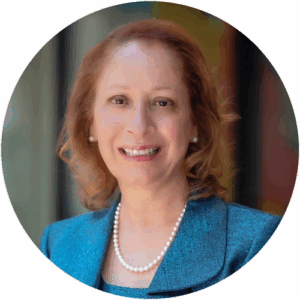
Dear EdgeDiscovery Community,
As the pace of innovation accelerates and transformative technologies like AI and quantum computing reshape the research landscape, this Summer/Fall 2025 issue of EdgeDiscovery invites you to explore the ideas, people, and infrastructures advancing discovery and inclusive innovation across our ecosystem.
We begin with a powerful conversation featuring Dr. Dan Stanzione, Executive Director of the Texas Advanced Computing Center (TACC), whose leadership in open science supercomputing continues to shape national and global capabilities. From Frontera, the fastest university-based supercomputer, to the new NSF-supported Leadership Class Computing Facility (LCCF), Dr. Stanzione offers insights into the future of AI-enabled HPC, the promise of quantum, and the importance of training the next generation of technologists. His thought leadership underscores the critical intersection of infrastructure and impact in advancing science.
We are proud to feature Dr. Ilkay Altintas, Chief Data Science Officer at the San Diego Supercomputer Center and Founding Director of the Societal Computing and Innovation Lab (SCIL), has built a career at the intersection of computing and societal impact. Her work spans environmental modeling, biomedical data, and advanced cyberinfrastructure, with a strong focus on accessibility, scalability, and responsible innovation. Through programs like WIFIRE, she has pioneered real-time hazard response tools that bridge research and emergency management, while also helping shape a data science workforce grounded in ethical and community-driven practice. At SCIL, she leads efforts to design user-centric, composable platforms that empower domain experts to harness AI and HPC without needing deep technical expertise. Dr. Altintas exemplifies how thoughtful collaboration and infrastructure innovation can drive equity, resilience, and discovery across disciplines.
We also feature a deep dive into the work of Dr. Frank Wuerthwein, Director of the San Diego Supercomputer Center, Executive Director of the Open Science Grid, and Principal Investigator of the National Research Platform (NRP). Dr. Wuerthwein shares his vision for building a scalable and inclusive infrastructure to support AI education and data-intensive science at institutions of all sizes, including community colleges and under-resourced campuses. He emphasizes that advancing education in AI requires not only technological infrastructure, but also social infrastructure, collaborative networks of educators, shared platforms, and aligned curriculum pathways. His efforts to democratize access to computing and integrate hands-on learning from high school to career reskilling reflect the kind of systems thinking needed to close opportunity gaps and scale innovation.
We highlight the contributions of Dr. Manish Parashar, Director of the Scientific Computing and Imaging (SCI) Institute, Inaugural Chief Artificial Intelligence Officer at the University of Utah, whose career has shaped national conversations around responsible AI, data sharing, research infrastructure, and policy. A mentor to many, including myself during his time at Rutgers, Dr. Parashar's vision and collaborative leadership have laid the foundation for initiatives such as the National Data Platform and the Virtual Data Collaboratory.
From national centers to regional catalysts, we spotlight Dr. Michael Johnson, President of the New Jersey Innovation Institute (NJII), whose work is redefining how higher education intersects with industry to translate academic innovation into real-world impact. Drawing on his entrepreneurial background and translational research experience, Dr. Johnson has positioned NJII as a nimble, mission-driven organization accelerating AI and EdTech innovation, expanding access for small and mid-size businesses, and addressing workforce development through pragmatic, cost-effective solutions.
Our feature on SHI International’s AI & Cyber Labs gives readers a glimpse inside one of New Jersey’s most exciting new facilities for enterprise AI adoption and experimentation. Through an interview with Lee Ziliak, SHI’s Field CTO, we explore their work with NVIDIA, aspirations for quantum engagement, and commitment to partnering with higher education institutions to accelerate responsible innovation.
These articles reflect the power of voices influencing national conversations. As regional research and education networks like Edge work to bridge gaps and build ecosystems, we’re reminded that partnerships, across disciplines, sectors, and geography, are essential to unlocking equitable access to advanced technologies.
As always, EdgeDiscovery is not just a publication, it is an evolving platform for dialogue, collaboration, and community-building. I hope this issue sparks new ideas and inspires deeper engagement as we continue to build a future grounded in innovation, access, and purpose.
 With appreciation,
With appreciation,
Forough Ghahramani, Ed.D.
Assistant Vice President for Research,
Innovation, and Sponsored Programs
Edge
